SEEK DISCOMFORT:
A BWIM Lenten Devotion
Welcome to Seek Discomfort, a Lenten devotional designed to challenge and inspire you on your Lenten journey. As we enter the season of Lent, a time of reflection and preparation for Easter, we invite you to step beyond the familiar and the comfortable into the discomfort of honest self-reflection. We’ll explore scripture, engage in prayer, and offer opportunities for restorative action, all designed to challenge your assumptions and broaden your understanding of faith. This journey is not meant to be easy, but it promises to be a rich and rewarding experience.
The first devotion in this guide is for Ash Wednesday. After that, there is one devotion per week of Lent until Holy Week when there are daily devotions from Palm Sunday until Easter. Unless indicated otherwise, devotions were written by Rev. Dr. Mari Wiles, who led and provided direction for the creation of this resource.
Lent is a time for confronting our shadows, acknowledging our privilege, and embracing the discomfort of growth. It’s a time to question, listen, and allow God to reshape our hearts and minds. Seek Discomfort with an open mind and heart, and allow yourself to be transformed by the power of God.
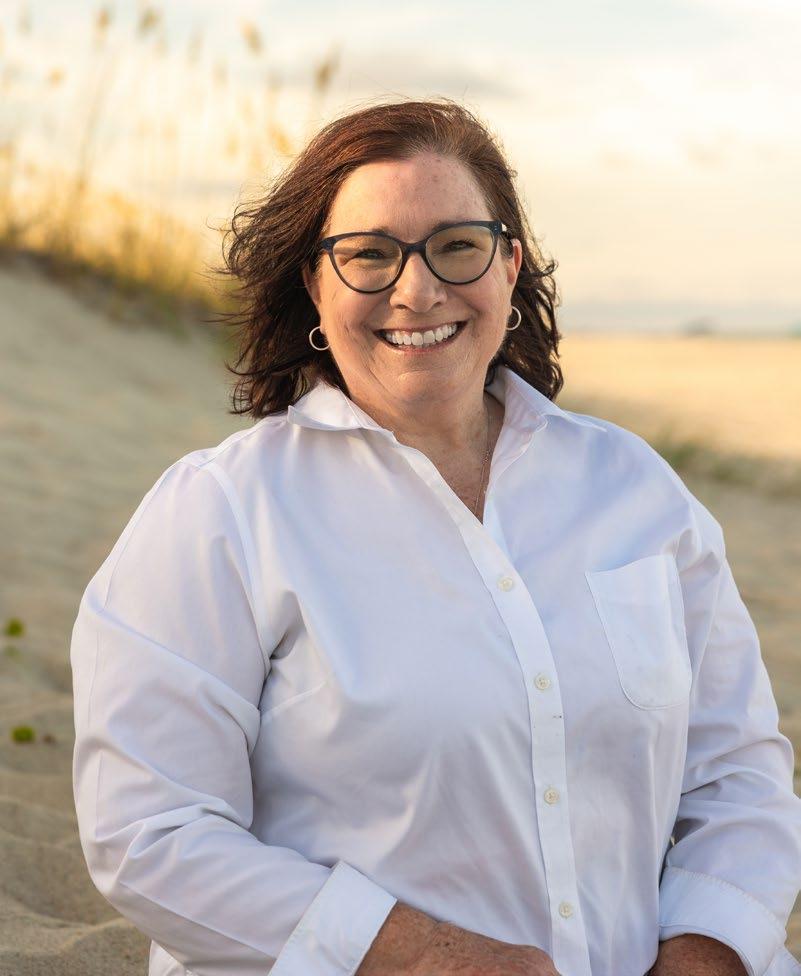
REV. DR. MARI WILES
WEDNESDAY | MARCH 5, 2025
PSALM 51:1-17
Rev. L. Nikki Hardeman
The familiar passage, Psalm 51, is traditionally attributed to King David, written after the prophet Nathan confronted him about his sin with Bathsheba. David had taken Bathsheba as his own, impregnated her, and then orchestrated the death of her husband, Uriah, in battle. Nathan confronted David using a parable: the story of a rich man who stole the beloved lamb of a poor man to feed a guest. David, outraged by the rich man’s actions, was unaware that Nathan spoke directly to him. Unaware until Nathan declares, “You are the man!” (2 Samuel 12:7)
David’s inability to see his wrongdoing without an explicit accusation illustrates how privilege operates. Without deliberate, on-purpose, conscious self-reflection, it’s challenging to recognize our privilege until it’s pointed out to us, usually after we’ve caused harm due to our lack of awareness. Whenever individuals with privilege fail to leverage that privilege to advocate for and uplift those without it, we contribute to the ongoing marginalization of the less privileged, regardless of the specific type of privilege (e.g., white, able-bodied, male, American, Christian, heterosexual, cis-gendered, etc.). In Psalm 51, we hear David’s anguish as he contends with his guilt. His pain over his own sin leads him to the repentance we read in the passage. In the situation with Bathsheba and Uriah, David had all the privileges. David was king, and he was Uriah’s commander in the army. Bathsheba had no recourse to refuse King David, and he knew that. Because of who he was, David could take what he wanted, no questions asked.
What if we understood that each time we allow a brother or sister to be marginalized, we, like David, “are the man!” We, too, have ignored the power of our privilege to help us bring good into the lives of others, and therefore, we have “despised the word of the Lord, to do what is evil in his sight” (2 Samuel 12:9).
This Lenten journey will ask you to take time to do this critical, deliberate, on-purpose, conscious self-reflection toward participating in the work of God’s liberating justice for all. I challenge you not to shy away from the invitation. We grow personally when we recognize our privilege and send healing waves into the world. This Lent, let us commit to not being ‘the man’ who ignores the needs of others. Let us, instead, use our privilege to build a more just and equitable world, reflecting God’s love for all through acts of justice and compassion.
LENT WEEK ONE | MARCH 9, 2025
PSALM OF LAMENT - PSALM 13
SCRIPTURE READING – JOHN 17:1-5
Dear Lenten Traveler,
Welcome! All are welcome as we travel down the dark side of the church calendar. Lent is hard, isolating, and often uncomfortable. You are encouraged to seek discomfort for the next six weeks. Each week, a devotion, a prayer prompt, a restorative action, and a lesson in lament will be offered. A prompt or devotion will be offered each day of Holy Week. The discomfort of the entrapment, mock trial, and cruel death of Christ is something we would rather not revisit. But that luxury is not ours. Now is the time we must be willing to address our privilege, our biases, our hunger for power, our spiritual apathy, and complacency. The gospel deserves this.
The glory of Easter morning is cheapened without this journey of lament. Jesus came to set all of humanity free. Let us be open to the moving of our Creator God. Trust the leading of the Spirit as she guides and protects us, even if it is from ourselves. Seek Discomfort!
In this week’s reading, Jesus says he has completed his earthly assignment “to give eternal life to all.” In a world deeply divided, we tend to think of “all” as all of my friends, my family, or all of the churches I attend. White, privileged men do not want to accept that they are cultural power holders while far from being the global majority. Women are quick to speak of the injustice of pay disparities but don’t want to address the stark differences between white women and women of color. Affluent churches wish to hide behind their past stories of large youth choirs and full balconies and look down on the small, healthy village church that is discounted because of its size. Christ achieved his assignment of offering eternal life to all, but we still struggle with only wanting the invited list to be approved by us.
God sent this one child out of love for the entire world. This Lenten season, let us be open to the Holy Convictions of the Spirit to acknowledge, embrace, and welcome the all. Wendell Berry calls the comfortable to discomfort. A part of the Lent journey is to be honest. Come along as we confront the true, the hard, and the uncomfortable. As we travel this journey, Seek Discomfort.
PRAYER PROMPT
There is an individual, people group, ethnic group, political group, etc... that you do not want to be included in God’s all. In your prayer times this week, ask God to challenge and change your heart/perspective/relationships. Intentionally pray for that person or persons so you can see them as worthy of God’s grace and salvation and your friendship.
RESTORATIVE ACTION
Someone is seen as “other” instead of “ all “ in your community, family, or congregation. Find a way to include them. Invite them to coffee or a meal. Write a note letting them know you see them and ask for forgiveness for those times you chose to see them as an issue over an individual.
A LESSON IN LAMENT
Our culture quickly excludes people we do not understand, feel entitled to judge, or do not like.
Spend some time reflecting on what lament might teach us.
One people group our congregations are quick to dismiss and even exclude is the LBGQTA+ community.
Click to listen to Selmer, Jesus from Texas.
What must it feel like to have the church where you were raised turn its back on you? We lament.
LENT WEEK 2 | MARCH 16, 2025
PSALM 31:1-5, 9-16
JOHN 17:6-9
Dear Lenten Traveler,
As Jesus continues to pray for us, he states that he has shared all he knows with the disciples, so we will continue to tell the story. We are constantly invited to accept serving one another as a lifestyle. Sometimes, an immersion in another culture or an experience shows us how important service is in the gospel story. God often calls us during the brokenness of others. Jesus wants us to continue to engage in a hurting world instead of insulating so we no longer hear their cries. To do so is to be willing to give up our power. Power and service cannot move in the same direction simultaneously.
I had the opportunity to lead a group of students from the University of Tennessee on a service trip to the Dominican Republic. The power system was very unstable during our visit, and on most days, we had limited electricity and hot water.
One evening, we visited a house church, and they spontaneously asked me to preach. As I stood to ask God to speak through me quickly, I looked into the eyes of my humble sisters and brothers, who seemed most desperate for a good word. The electricity went out. I prayed for wisdom and recall as I couldn’t see my hand before my face, much less the scripture. God shows up, and we get to be the voice used.
As I concluded the impromptu sermon, I said, “Jesus is the light of the world.” And the lights came on! The people cheered and thanked me for what I had done. For a millisecond, I thought, well done! And God laughed. I have no power. Jesus is the source. We are so quick to believe we bring forth God's moments. We do not. As we keep telling the story, Seek Discomfort.
PRAYER PROMPT
From WOMAN PRAYERS,
“A fish cannot drown in water. A bird cannot fall in the air. Gold is not dissolved in fire –for there, it receives its brilliant sheen. This gift is given to everything: To live with its own nature. How could I oppose who I am? I am inclined toward God and must go through all things into God.”
Mechtild of Magdeburg, Germany, c.1212-82
Pray over what you must go through with God. Release those things that are not your true self so you can be fully present before God.
RESTORATIVE ACTION
Do service for someone without them knowing it was you. Reflect on the privilege to serve without recognition. Jesus modeled for us that service is about the one being served, not the one serving.
A LESSON IN LAMENT
Click to participate in a Litany of Lament
PSALM 12
JOHN 17:10-11
Dear Lenten Traveler,
Jesus prays that with power, we will be “one.”
Power is seductive. In our culture, we do not see it unify people. We see people desperate to claim it and then do anything not to lose it. Indeed, this is not the power Christ prayed for us. Christ is praying that we would yield to the power of the Holy Spirit to unify us. Together, we are always stronger, more creative, and more resilient. Power alone will do just that: find us alone.
In Exodus 1:15-22, the story of Shiphrah and Puah, we see the power of unity and equality for the good of God’s plan. Shiphrah and Puah are meek midwives. Pharaoh feels threatened and wants all the male Hebrew boys to be killed at birth. Can you imagine telling two women whose sole being is to help bring new life that they must kill the boys? Shiphrah and Puah act as one and continue to assist in the birth of all of God’s children. When Pharaoh challenged them, they stated that the Hebrew women were so strong that they gave birth before they could get there (wink, wink). United, they lied to the earthly power of Pharaoh because they were committed to the supreme power of God. God rewarded them with their own families. During their season of midwifery, one of those Hebrew boys who survived was Moses. What is God wanting to “birth” in you, your relationships, your church, and your calling? God’s power unites us to do more, be more, and love more—together. Seek Discomfort together.
PRAYER PROMPT
Give thanks for the women who have brought life into your being.
Click to listen to “For the Women,” by Amena Brown
RESTORATIVE ACTION
This week, engage with the global majority. Listen to or watch the BBC, and engage with art and music that is non–white, non–male, or non–whatever you identify. Listen to podcasts or comedians of those whose voices are often silenced. Read a book by a Black woman. Listen. Learn. Engage.
A LESSON IN LAMENT
In South Africa, they say, “Every child is my child.” Listen, reflect, and lament with the music of Urban Doxology.
Click to listen to “God Not Guns,” by Urban Doxology
PSALM 22
JOHN 17:12-16
Dear Lenten traveler,
This week, Jesus prays that God will leave us in the world but protect us. We need each other. We can learn from one another. We can live so that we do not harm one another. Wicked is making its mark on the world. I imagine that many women in ministry identify more with Elphaba than Galinda. We often struggle to have safe spaces and are encouraged to be “less” than our true selves to make others more comfortable. The story shows us that Elphaba listens to the voiceless, attempts to defy gravity, and creates a community where the most unique will be valued members.
Jesus prayed that we would be protected while in this world. In a broken, divided culture, the most valid form of protection may be the welcome of another who truly sees and accepts us as made in God’s image—even in shades of green.
It is hard for the world to understand people of faith. We too often talk out of both sides of our mouths and are regularly seen as not being “safe” for those not just like us. We think we can decide who is worthy of protection and who is not. This Lent, and as we advance, may we open our eyes, hearts, homes, and congregations to all our fellow travelers longing for acceptance and holy protection. Who are we to be the gatekeepers when we are who we are because God touches us, protects us, and encourages us to defy gravity, and we are more for it? Seek Discomfort as we dismantle labels.
PRAYER PROMPT
This week, in your prayer times, ask God to show you how to appreciate how the lives of those who are not like you have changed you for the better. Lift these friends in prayer. Be aware of how the Spirit has protected you and offers that to all. Pray for new eyes to see and a new heart to love BIGGER.
Click to listen.
RESTORATIVE ACTION
This week, support Black, female, and minority-owned businesses, restaurants, and products. Engage in conversation with those you encounter. Listen and learn from them. Start building bridges where there have been walls.
A LESSON IN LAMENT
How has your privilege harmed someone? What will you do about it? Have you ever asked someone to be less of who God made them to make you more comfortable? What do you do with that, and will you contact them for conversation and forgiveness?
PSALM 86
JOHN 17:17-19
Dear Lenten traveler,
Jesus is praying that we will be consecrated to the truth. As Christ's followers, we have been prayed over that the truth will be sacred to us. What a high and holy calling—and also a costly one. Our culture likes to allow everyone to have his/her version of truth. That mockery isn’t sustainable, and we should be on alert to know that Jesus's truth is our only compass for this journey.
Maeyken Wens was wife to Mattheus and mother to Adriaen and Hans in Antwerp. She was arrested and punished for sharing her faith that went against the State Church. She didn’t stop. She was passionate about sharing Jesus' truth at all costs. The government decided to make an example of her by sentencing her to a cruel death, being burned alive. Before they took her and several others to be burned, they took a screw and screwed her tongue to the roof of her mouth. They were adamant that she would speak no more. Truth often scares those who want to manipulate it.
History tells us that her two sons were present that day in October 1573. Adriaen, then 13 or 14 years old, passed out as his mother burned to death. Once he came too, he and his 3 year old brother Hans stayed until the coals were cool enough to retrieve the screw. Speaking the truth in love is costly. Speaking truth to power can be devastating. But screwing tongues does not stop the truth.
Adriaen Wens goes on to help hide Menno Simmons when his life is threatened. Simmons will be the father of the Mennonites, non-violent followers of Christ. The truth continues long after we lose our voice. Christ prayed that we would stay in the truth of his Love. May it be so. Seek Discomfort as we love boldly in truth.
PRAYER PROMPT
Write a prayer about how you are responsible for the power given to you. Explore how God teaches you to be true in a world choking on falsehood. What does God ask of you?
RESTORATIVE ACTION
When have you watched someone's reputation, career, or faith burn before you, and you were silent? Reach out to them. Seek their mercy and find ways to speak for those attacked in the name of Jesus' truth.
A LESSON IN LAMENT
Donna Barber in BREAD FOR RESISTANCE says, “’Doing Justice’ is often intense and progress is painfully slow, for it requires both strength and endurance to accept the mistake, the misquote, and the misunderstanding, or to push through the pain of disappointment . . . again. You must be willing to be a friend without making friends and to find glory in your weakness. Days are sometimes wrought with emotional cuts and bruises, and relationships are often strained or lost. Patience is tested. Courage is tried. Yet love must remain both method and goal.”
This week, carry a screw in your pocket or purse as you seek to maintain the audacious love of Christ.
LENT WEEK 6 | HOLY WEEK | APRIL 13, 2025
PALM SUNDAY
Dear Lenten traveler,
Mobs are capricious. One day, they proclaim hallelujah, and a few days later, they scream, “Crucify him.” Same mob. We are not called to be the mob. We are called to be the hands, feet, and voices of the new covenant of love. Be better than the mob.
When the Nazis arrived in Amsterdam, they entered the elementary school for the deaf, and they shot and killed 15 of the known 21 Jewish students. We do not have the luxury of being aghast at this as we now count school shootings by the school, not the number of children lost. When the war was over, the local people erected a plaque in front of the school with the words, “The World is Still Deaf” in sign language.
As the mob lines the streets welcoming “King Jesus,” they will soon be the same mob screaming to kill him. We have amnesia in groups sometimes. We willingly hand over our critical thinking and get swept away with whoever is the loudest in the crowd. This has not served humanity well. This has not served the church well.
This Palm Sunday, may we be brave enough to recognize Jesus's impact in a short time and the widely diverse group of people he served and transformed. It is stunning. We hope to find ourselves waving our branches with our hallelujahs in the crowds. It feels good to have those spiritual highs. May we also be brave enough to recognize when the mob shifts and becomes deaf to the truth. We do not have to join in with them. We are called NOT to join them.
May we be faithful in living and telling the truth of Christ’s love and life. May we be faithful in turning a deaf ear to lies and indifference even when difficult, scary, and lonely. Let us cling to the small whispers of truth when the crowd starts squawking because the crowd will always squawk. Seek Discomfort as you follow the truth.
Explore the Stations of the Cross by Laura James this week.
HOLY MONDAY | APRIL 14, 2025
ISAIAH 42:1-9
JOHN 12:1-11
Dear Holy Week traveler,
Today, spend time in prayer and reading today’s scripture.
PRAYER PROMPTS
As you pray, reflect on Christ’s birth, ministry, and death’s impact on your life. Let God hear your honest hope because Christ came to earth.
Click to listen.
HOLY TUESDAY | APRIL 15, 2025
PSALM 71:1-4
JOHN 12:20-26
Dear Holy Week traveler,
Make time to be present to others.
RESTORATIVE ACTION
Someone you know has church hurt. Reach out to them and listen to their sorrow and pain. Invite them to be a part of your church’s Holy Week services.
HOLY WEDNESDAY | APRIL 16, 2025
PSALM 70
JOHNS 13:21-32
Dear Holy Week traveler,
Make time to be present to Jesus.
A LESSON IN LAMENT
Write a letter to Jesus about how you have experienced him this Lent. Offer your lament and be open to the Spirit’s leading to reconcile your soul with Christ.
MAUNDY THURSDAY | APRIL 17, 2025
JOHN 13:31-34
Boundless Leadership: #LeadingWithLove
By Rev. Dr. Daynette Perez
As we prepare to lead in the days ahead, I offer you this sacred moment of quiet sanctuary—a sweet and liminal space to pause between where you have served and where God is calling you next in ministry. Together, we recognize the weight of what lies ahead, how we have prepared, and our shared calling, served with faith and love.
I lift this prayer over you, for you, and through you, my dear sisters and brothers in Christ. May it bring you a breath of unexpected awe for living, leading, and loving faithfully in your role. Remember that we stand together on this Maundy Thursday as you speak this prayer. Though we walk along different paths, we are united in our sacred callings. Wherever God leads us, may we go with humility, love, and the assurance that we are never alone.
God of all,
Thank you for calling us to serve and lead in your name. We are humbled by your trust in us to guide others toward your love and truth. Lord, we ask for your strength and wisdom as we follow you.
Help us live humbly, like Jesus, putting others’ needs before our own and serving joyfully. Teach us to lead with hearts full of courage and sacrifice, willing to follow your example even when it’s hard. Let our leadership inspire others to grow in their faith and trust in you.
Remind us to love boldly and intentionally, creating spaces where people feel seen, valued, and united. In a world that often feels divided, help us reflect your boundless love in every relationship and every act of ministry.
We pray for clarity when the path feels uncertain, courage when the challenges seem overwhelming, and compassion when others need our care. Fill our hearts with your peace and our spirits with renewed energy to do your work.
Thank you for equipping us with the gifts we need to lead well. May we always rely on your grace and follow your example, bringing glory to your name in all we do.
In Jesus’ name, we pray. Amen.
GOOD FRIDAY | APRIL 18, 2025
ISAIAH 52:13-53:12
The Color Purple: Suffering in Search of Sanctuary
By Amber Cunningham
Well, it’s Good Friday. Honestly, what’s so good about suffering? Is it the promise that it won’t last forever? I don’t know the definitive answer, but my answer is yes. Yes, I believe suffering won’t last forever, and I believe it can build character. Suffering is not the sole qualifier to build character; it is an experience that shapes it.
This reflection takes my mind to the collective experience of Black women. If I dive deeper, I’m reminded of Celie from Alice Walker’s The Color Purple. The “suffering servant” in Isaiah 52:13–53:12 is narrated using male pronouns, yet I can’t help but draw parallels between Celie, the Sun Woman in Revelation 12, and the servant in Isaiah. Each of these figures endures profound suffering, and eventually, each is granted access to a sanctuary uniquely prepared for them.
The Sun Woman, Celie, and the “suffering servant” spend much of their journeys on the road to their crucifixions. The Bible gives us many accounts of Jesus’ life, much of which he spent healing and serving marginalized people. Similarly, the women in this message are marginalized. Both Celie and the Sun Woman lived under constant objectification. While they served in many ways, their most dangerous form of service was through childbirth—a sacred yet painful act that amplified their suffering. Today, Black women are often expected to accept service and suffering as our default posture to this nation and to society. There are many ways to respond to this experience, but I’ll lead with curiosity. One of the hardest questions to grapple with is whether their suffering ever truly ends. On the surface, their stories suggest the answer is no. Yet what’s empowering about this “no” is that both women continued to serve, enduring their circumstances with as much grace as possible. In this way, they mirror the “suffering servant” of Isaiah, who was despised and rejected yet chose to serve and heal others. Sounds like Jesus, who suffered but was ultimately granted sanctuary by God; their stories remind us of hope amid hardship.
Over the past five years of varying pandemics, we’ve all experienced suffering in different ways—through growth or grief, sorrow or joy, hope or fear. Yet no matter how we’ve suffered, God is the ultimate preparer of sanctuary. Sacred, intentional spaces were prepared for Celie, the Sun Woman, Jesus, and you. With such a promise, why we call this Friday Good becomes clear.
HOLY SATURDAY | APRIL 19, 2025
1 PETER 4:1-8
Holy Suffering
By Rev. Bianca Robinson Howard
Holy Saturday is an in-between day. It’s not Good Friday or Resurrection Sunday; it’s Holy Saturday. The crosses at our churches are still draped in black. It’s a silent and uneventful day unless you have an Easter egg hunt planned.
What happens on Holy Saturday? What happens in the in-between?
Well, that day is holy, too, just as holy as Friday and Sunday. See, the in-between is a holy space, a space of waiting, a space of figuring life out, a space of dealing with ourselves, dealing with sin, and a space of suffering. And as Christ did, suffering for the will of God according to 1 Peter 4:1-2.
All human beings deal with suffering in some sense, but as women, we have a unique experience of suffering. In the physical sense, suffering is a result of childbirth, a menstrual cycle, and menopause. Or suffering regarding the stereotype of being too emotional or being in a male-dominated field and considered second rate or not good enough, or having to be twice as good, or our calling being up for debate all because we are not men. These are unique challenges women deal with daily. We have a special cross to bear. Ministry is a weight, but being a woman in ministry carries a double weight and wait. Double suffering.
On this Holy Saturday, I challenge you to pray for a woman in ministry, a woman in leadership in corporate America, a woman who is a business owner, a single mom juggling children and a job—women who sometimes deal with double suffering just because they are women.
And also, on this holy day of in-between, think about the suffering in-between when you have to wait to be recognized, wait to be considered; the in-between can bring uncertainty and fear as it did for many the day after Jesus was put to death. The inbetween.
Pray for a woman who fears stepping out in a call to ministry without support, who is uncertain of her next step as she waits on God, and who desires to be considered and recognized for her work in ministry.
As we deal with the suffering of the in-between, we wait for a Lord who will always come through and a God who will always use our suffering. And it always turns out for our good and for the good of humanity (Romans 8:28). Holy suffering all for the will of God.
EASTER SUNDAY | APRIL 20, 2025
JOHN 20:1-18
By: Rev. Dr. Meredith Stone
At the end of our Lenten journey, which has included mindfulness of suffering, injustice, oppression, and our internal journey of repentance, we come to Easter morning’s revelation of hope.
We often call the scripture passages we read on Easter “the resurrection accounts.” However, if we look closely, these verses are not an account of the resurrection itself. The gospel writers do not recount what actually happened when Jesus was transformed from dead to living because no one witnessed it. Instead, the narratives describe how Jesus’ resurrection was revealed to the disciples.
The key difference between a direct eyewitness account of an event and an account of when an event is made known is the necessity of trust.
The disciples and gospel writers had to trust Mary about what she had seen. Subsequently, we have to trust Mary and the rest of the disciples about what they witnessed as well.
We often think of faith as our trust in God’s existence, our belief that Jesus was fully divine, and our confidence that his sacrifice was a salvific event.
But to reach that kind of trust in God, we must also trust in people’s accounts of God being made known.
Like the gospel writers, we trust Mary’s description of how the resurrection was revealed to her. And in the same way, we trust Mary, our faith also requires us to trust in one another and how we hear each other describe God’s work in our midst.
Resurrection faith is communal and requires us to trust in people as well as in God. Therefore, our resurrection faith must trust women when they describe God’s call on their lives, when they recount the injustice and suffering they experience, and when they offer proclamation of the Word of God.
Trusting women has been a central aspect of the Christian faith since the first Easter morning.
Perhaps one aspect of the Easter hope that we might find this year is a hope for what the collective expression of the body of Christ can look like when our faith includes trusting one another, and becoming people worthy of the trust of our fellow believers.
AUTHOR
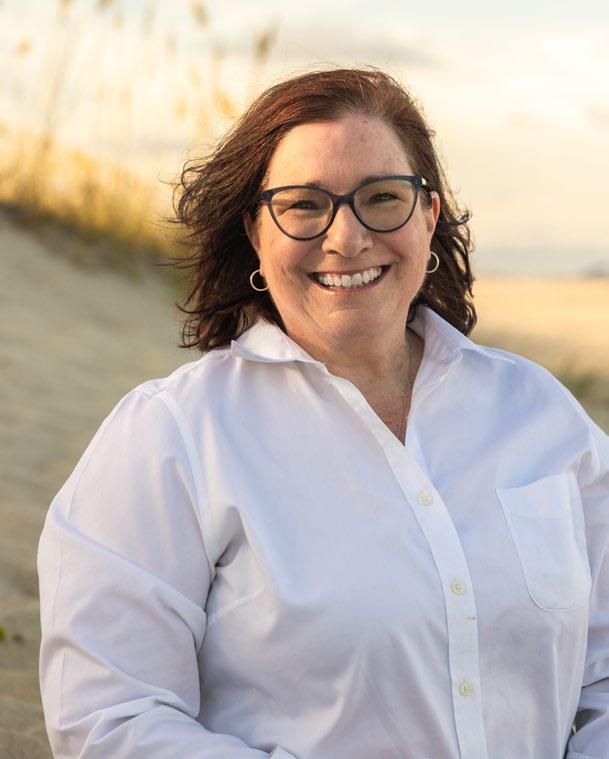
Rev. Mari E. Wiles, M.Div, is a compassionate and creative minister who has served congregations in North and South Carolina, Tennessee, and Virginia. She has also served as a Pastor and Administrator at a university. Mari is passionate about connecting people to God’s bigger world as a part of their faith journey. Whether preaching or leading a group, Mari brings a fresh perspective, authenticity, and a lot of Holy Listening. Mari has led service trips around the globe and across the country. She knows that trips are a tool to assist people in seeing serving as a lifestyle.
Mari pastors a Virginia congregation, offers Clergy Coaching, and walks her big Doberman, Max. If anyone wants to explore their Lenten journey, she can be reached at mari.wiles@gmail.com.
CONTRIBUTORS
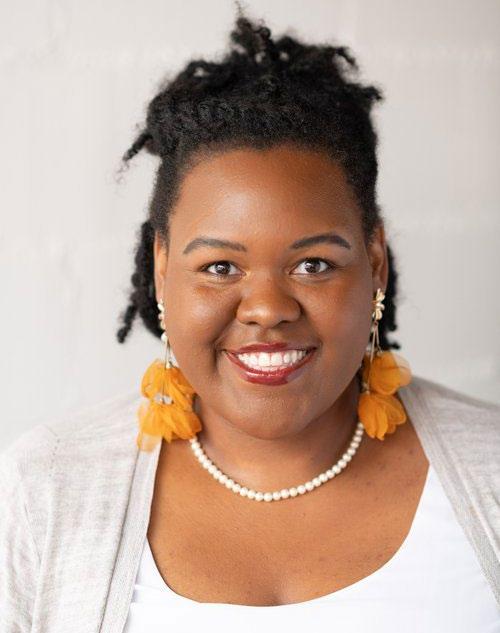
Amber N. Cunningham, M.Div., serves as the Operations Coordinator at Metanoia, a nonprofit organization dedicated to transformative community work. With a rich chaplaincy and pastoral care background, Amber brings a compassionate and strategic approach to her role. She holds a Master of Divinity from McAfee School of Theology at Mercer University in Atlanta, GA, and a Bachelor of Arts in History from Chowan University in Murfreesboro, NC.
Amber is passionate about discovering new possibilities, embracing each season with curiosity and purpose. She finds joy and renewal in traveling to new places, exploring cultures, and prioritizing rest as an essential part of her journey. Her love for learning fuels her personal and professional growth, inspiring her to approach challenges creatively and openly.
Amber strives to foster justice, equity, and hope in all she does. She blends her operational expertise and ministerial heart to serve her community with purpose and resilience.
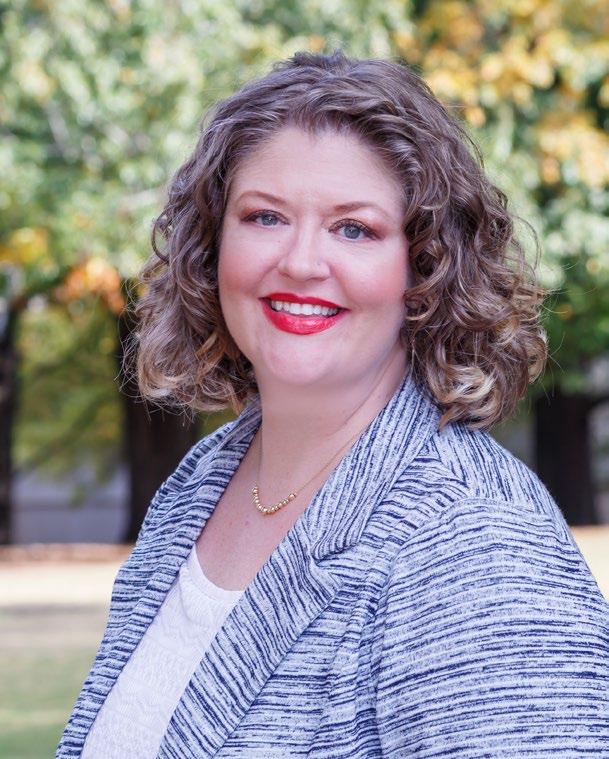
Rev. L. Nikki Hardeman has served as BWIM’s Director of Advocating for Women in Ministry since June 2024,. Nikki received a Master of Divinity from McAfee School of Theology at Mercer University and a Bachelor of Arts from Mercer University. Following her education, she served local churches in Georgia through youth, young adult, and homebound ministry roles. She also ministered on the state denominational level as associate coordinator for congregational life at the Cooperative Baptist Fellowship of Georgia. As her family grew, Nikki chose to stay home with her children and pursue her vocational ministry through retreatleading, supply-preaching, adjunct teaching, and writing and producing a small-group Bible study curriculum called FaithElement, which she continues today. Before joining BWIM’s staff in June 2024, Nikki served her alma mater, McAfee School of Theology, by supporting alumni and creating important partnerships for the school. She has also recently completed a tenure as Interim Pastor of Maranatha Baptist Church in Plains, GA, the home congregation of President Jimmy Carter.
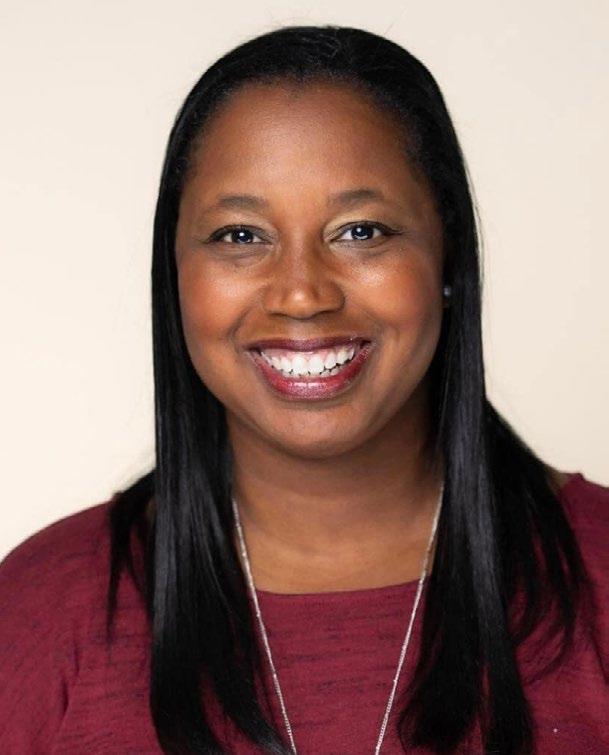
Rev. Bianca Howard is a native of Portland, Oregon, but was raised in Atlanta, GA. She has served over 25 years in ministry and was ordained in the Baptist Church in 2005. For the last 16 years, she served as the Children & Youth Pastor at Zion Baptist Church in Marietta, GA, and was the youngest female ordained in the church’s history. She also worked for Orange, which creates curriculum & resources for kids & students, and she served as a specialist for Black Churches. Currently, she serves with Ministry Architects as a Ministry Consultant. She received her M.Div. from Howard University School of Divinity and Th.M from Princeton Theological Seminary. She is pursuing her D.Min at Fuller Theological Seminary in Youth, Family, and Culture. Howard is a proud and active Alpha Kappa Alpha Sorority, Inc. member and uses her ministerial gifts within the sorority. She is part of a clergy couple and married to Rev. Joseph T. Howard, and together, they have a daughter and a son. Together, they reside in Atlanta, GA.
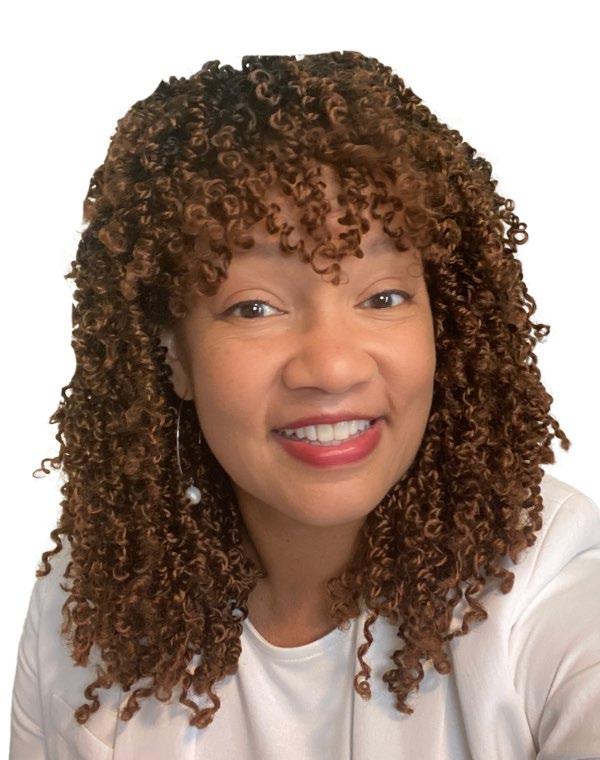
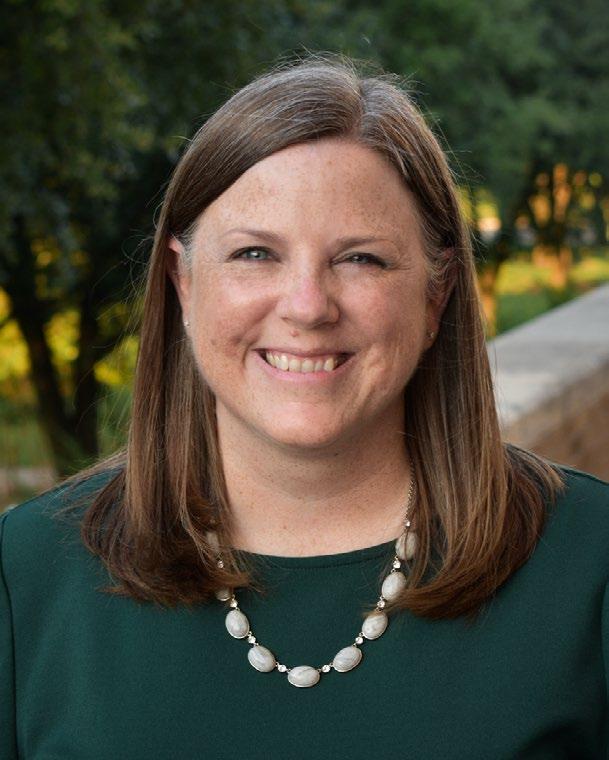
Rev. Dr. Danette Snead Perez, DMin., is an Ordained Minister and CEO/Founder of DIASPRA, dedicated to equipping Christian leaders to cultivate faith-driven inclusion and relational intelligence. Through her expertise, she empowers leaders to become agents of reconciliation and living reflections of God’s love. Her signature program, Stranger to Neighbor Ministry®, delivers proven strategies for fostering church growth, deep connections, and expanding ministry impact. Daynette is also the author of the #1 bestselling book, Church: What To Do When Everyone Is Like You. She and her husband, Pedro, live in Charlotte. Connect with Daynette at strangertoneighbor.com or on social media.
Rev. Dr. Meredith Stone has served as Executive Director of Baptist Women in Ministry since 2020. She is an ordained minister and has previously served as Associate Dean for Academics and Assistant Professor of Scripture & Ministry at Logsdon Seminary of Hardin-Simmons University, in congregational ministry, and with other Baptist organizations. Meredith received both her Bachelors and Masters degrees from Hardin-Simmons University, and earned a Ph.D. in Biblical Interpretation from Brite Divinity School at Texas Christian University. Meredith is the author of Empire and Gender in LXX Esther (SBL Press, 2018), along with other academic publications and articles related to women in ministry and religious gender justice. Meredith’s advocacy for women among Baptists has been featured in national news outlets such as CNN, The New York Times, The Washington Post, USA Today, NPR, and Religion News Service. She lives in Waco, Texas, with her husband, James, and their children.
